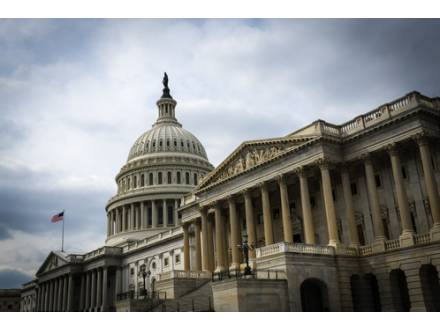What is the Dignity Act?
 The one-year anniversary of the introduction of the Dignity Act (HR 3599) was this past May. Submitted by Representative Maria Salazar, the bipartisan bill remains what many believe is the only viable bill in Congress that addresses every aspect of our immigration system. The bill continues to gain support from both sides of the aisle. Should the Dignity Act pass in Congress and the Senate, it could change many of the immigration rules and laws currently in place.
The one-year anniversary of the introduction of the Dignity Act (HR 3599) was this past May. Submitted by Representative Maria Salazar, the bipartisan bill remains what many believe is the only viable bill in Congress that addresses every aspect of our immigration system. The bill continues to gain support from both sides of the aisle. Should the Dignity Act pass in Congress and the Senate, it could change many of the immigration rules and laws currently in place.
The information below can help you learn more about the Dignity Act and the expected consequences for immigrants should it pass. You must also speak to a knowledgeable Bloomingdale, IL immigration attorney about any specific immigration issues you may have. When you choose Mevorah & Giglio Law Offices, you will benefit from a highly skilled legal team with extensive experience in all immigration issues.
What Are the Overall Goals of the Dignity Act?
There are four core principles of the Dignity Act, which are meant to:
- Halt illegal immigration
- Provide dignified solutions for undocumented immigrants
- Remain both competitive and prosperous
- Strengthen the American economy and workforce
Border security would be strengthened through technological upgrades that would include a biometric entry/exit data system, integrated surveillance systems, license plate readers, and more secure communication technology. Just as important to many are the provisions in The Dignity Act for solutions for undocumented immigrants.
What Are the Proposed Solutions for Undocumented Immigrants in The Dignity Act?
"Dignity" legal status would be granted to certain undocumented immigrants who are currently in America. These individuals would be granted the ability to travel and work in the U.S., along with the ability to work and travel in the U.S. permanently, so long as they meet the stated criteria.
This is expected to bring as many as 11 million undocumented people out of the shadow, although the program requires each person to pay $5,000 over the course of seven years. If there are any outstanding taxes owed, these taxes must be paid. Those participating in the program would be expected to continue paying their taxes or start paying taxes and must pass a background check.
Long-term agricultural workers would be able to transition to Legal Permanent Resident status after a set number of years working in agriculture. Dignity recipients who otherwise meet enlistment requirements could join the U.S. military and pursue their citizenship through military service. Asylum seekers with a "credible fear" would have their asylum case decided within 45 days.
Migrants would be able to apply for guest work visas (H-2A and H-2B) while assessing their eligibility for other avenues of lawful citizenship. A family reunification program would reunite children and young adults under 21 with their parents or guardians in the United States who currently hold legal immigration status.
How Would the Dignity Act Help the Economic Growth of the United States?
It has been estimated that the Dignity Act would clear the current backlog of green cards, resulting in trillions of dollars of economic benefits for the U.S. The Green Light to Growth predicts that clearing this backlog would increase the U.S. GDP by $3.9 trillion over the first ten years. The Dignity Act has many more parts that could potentially benefit many undocumented immigrants who are already in the U.S. as well as those who want to come to the U.S. to work or to reunite with their families.
Contact a DuPage County, IL Immigration Lawyer
Perhaps you are facing Removal and Deportation, need an Adjustment of Status, are seeking citizenship, or need assistance with a family-based, fiancé, employment-based, student, or temporary visa. You may be a "Dreamer" who is worried about your ability to remain in the United States. Whatever your issue, Mevorah & Giglio Law Offices can help. Attorney Steven H. Mevorah has been serving the needs of immigrants throughout Northern Illinois for almost four decades. If you need an experienced Naperville, IL immigration lawyer, contact Mevorah & Giglio Law Offices at 630-932-9100 to schedule a free consultation.
 English,
English,
 Spanish,
Spanish,
 Polish,
Polish,
 Urdu
Urdu












 Make a Payment
Make a Payment



